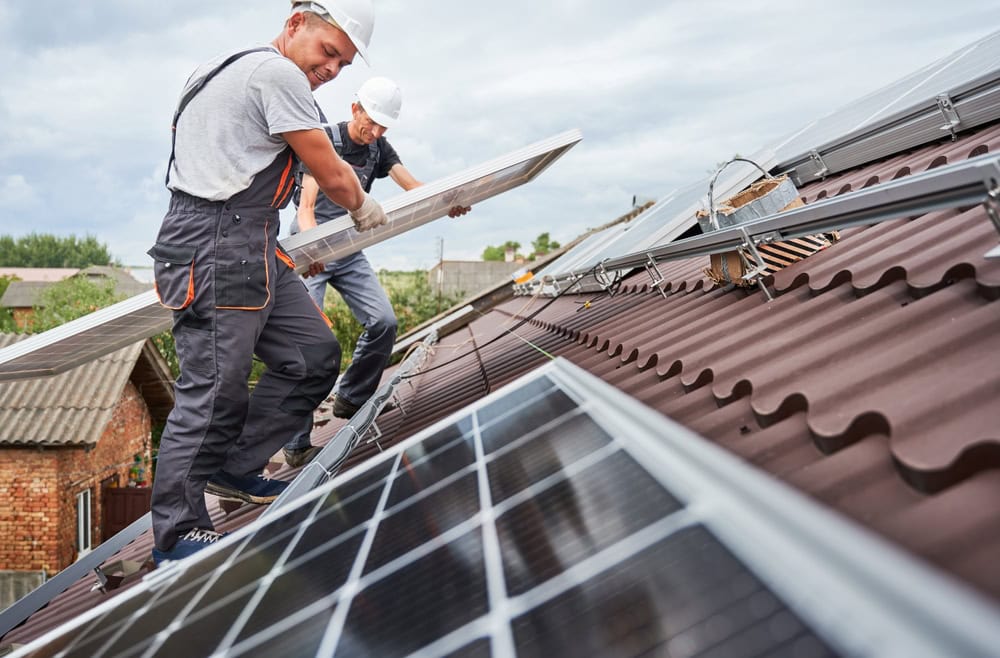Electrical contracting is a dynamic and ever-evolving trade, playing a crucial role in both residential and commercial construction. With advancements in technology and a growing focus on sustainability, the field of electrical contracting is undergoing significant transformations. This article explores the latest trends, innovations, and sustainable practices that are shaping the future of electrical contracting, providing valuable insights for modern electricians.
The Rise of Smart Home Technology
Integration of Smart Systems
Smart home technology is revolutionizing how we interact with our living spaces. Electrical contractors are at the forefront of this transformation, integrating smart systems that enhance convenience, security, and energy efficiency.
- Smart Lighting: Electricians are increasingly installing smart lighting systems that can be controlled via smartphones, voice commands, or automation. These systems not only offer convenience but also help save energy by adjusting lighting based on occupancy and natural light levels.
- Philips Hue for smart lighting solutions.
- Lutron Caseta for smart lighting controls.
- Home Automation: From smart thermostats to automated blinds, electrical contractors are installing devices that allow homeowners to control various aspects of their homes remotely. This integration of home automation systems is creating more comfortable and energy-efficient living environments.
- Nest for smart thermostats and home automation.
- Control4 for comprehensive home automation solutions.
Energy Management Systems
As energy costs rise and environmental concerns grow, energy management systems (EMS) are becoming a critical component of modern electrical installations. These systems monitor and control energy usage, helping homeowners and businesses reduce their energy consumption and carbon footprint.
- Solar Power Integration: Electrical contractors are increasingly involved in the installation and maintenance of solar power systems. Integrating solar panels with the existing electrical grid and setting up battery storage systems are becoming common tasks for electricians.
- Tesla Powerwall for home battery storage.
- SunPower for solar energy solutions.
- Energy Monitoring: Smart meters and energy monitoring devices provide real-time data on energy usage, allowing homeowners and businesses to make informed decisions about their energy consumption. Electricians play a key role in installing and configuring these systems.
- Sense Energy Monitor for home energy monitoring.
- Schneider Electric Energy Management for commercial energy management solutions.
Advancements in Electrical Safety
Arc Fault Detection
Electrical safety is paramount in any installation. Advancements in arc fault detection technology are helping prevent electrical fires by identifying and mitigating potentially hazardous arc faults.
- Arc Fault Circuit Interrupters (AFCIs): AFCIs are devices that detect and interrupt arc faults in electrical circuits. They are increasingly being installed in residential and commercial buildings to enhance safety.
- Eaton AFCIs for arc fault protection.
- Siemens AFCIs for advanced arc fault circuit interrupters.
Ground Fault Protection
Ground fault protection devices are essential for preventing electrical shocks and ensuring safety in wet or damp environments.
- Ground Fault Circuit Interrupters (GFCIs): GFCIs are required in areas like kitchens, bathrooms, and outdoor spaces to protect against electrical shock. Electricians are responsible for installing and maintaining these crucial safety devices.
- Leviton GFCIs for residential and commercial applications.
- Hubbel GFCIs for ground fault protection.
Sustainable Electrical Practices
LED Lighting
LED lighting is becoming the standard in both residential and commercial installations due to its energy efficiency and long lifespan. Electrical contractors are increasingly recommending and installing LED fixtures as part of sustainable building practices.
- Benefits of LEDs: LED lights consume significantly less energy than traditional incandescent or fluorescent bulbs and have a much longer lifespan, reducing maintenance and replacement costs.
- Cree Lighting for energy-efficient LED solutions.
- GE Current for commercial LED lighting.
Electric Vehicle (EV) Charging Stations
The rise of electric vehicles has created new opportunities for electrical contractors. Installing EV charging stations in homes, workplaces, and public spaces is becoming a key service offered by electricians.
- EV Charger Installation: Electricians need to be knowledgeable about the various types of EV chargers, electrical requirements, and best installation practices to meet the growing demand for EV infrastructure.
- ChargePoint for residential and commercial EV charging solutions.
- Tesla Charging for Tesla-specific charging stations.
Embracing New Tools and Technologies
Advanced Diagnostic Tools
Modern diagnostic tools are enhancing the ability of electricians to identify and resolve electrical issues quickly and accurately.
- Thermal Imaging Cameras: These cameras detect heat patterns and identify overheating components, helping electricians prevent potential failures and improve system reliability.
- Fluke Thermal Imaging for high-quality thermal cameras.
- FLIR Systems for advanced thermal imaging solutions.
Building Information Modeling (BIM)
BIM is transforming how electrical systems are designed and managed. By creating detailed digital models, electricians can plan installations more accurately and efficiently, reducing errors and rework.
- BIM for Electrical Contractors: Using BIM software, electricians can visualize complex electrical systems, coordinate with other trades, and ensure compliance with building codes and standards.
- Autodesk Revit for BIM software solutions.
- Trimble MEP for electrical BIM and CAD services.
Robotics and Automation
Robotics and automation are beginning to make their way into the electrical contracting industry, offering new ways to improve productivity and safety.
- Automated Cable Management: Robotic systems are being developed to assist with tasks such as cable laying and conduit installation, reducing manual labor and increasing precision.
- Robotic Cable Management from igus.
- Robotics in Construction for insights into automation in construction.
The field of electrical contracting is rapidly evolving, driven by advancements in technology and a growing emphasis on sustainability. For newly licensed electricians, staying informed about these trends and embracing new tools and practices is essential for success.
By integrating smart home systems, energy management technologies, and sustainable practices, electricians can offer valuable services that meet the demands of modern clients. Additionally, leveraging advanced diagnostic tools, BIM, and robotics can enhance efficiency, safety, and profitability.
For further resources and updates on electrical contracting, visit:
- National Electrical Contractors Association (NECA)
- International Brotherhood of Electrical Workers (IBEW) for training and certification programs.

